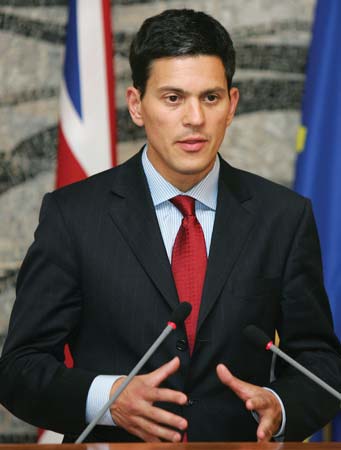 It's the end of the so-called 'noughties' and I'm sure the space between Christmas and New Year will be sufficiently full of 'wise after the event' reflections on the first decade of the third millenium AD (or CE or you prefer a non-religious option). Seems to me that the first story of the decade - the non-story of the millenium computer bug that was due to destroy us all - stands as a suitable precursor to all that came after. There were few events that were not subject to media overload and often hysterical commentary. They came a bit stuck with 9/11 - the defining event of the decade - but just about managed to pillage the English language for expressions of ever greater outrage. 9/11 gave us George Bush as a war leader, and Tony Blair as a cheerleader-in-chief, and both roles ultimately proved - and are proving - disastrous.
It's the end of the so-called 'noughties' and I'm sure the space between Christmas and New Year will be sufficiently full of 'wise after the event' reflections on the first decade of the third millenium AD (or CE or you prefer a non-religious option). Seems to me that the first story of the decade - the non-story of the millenium computer bug that was due to destroy us all - stands as a suitable precursor to all that came after. There were few events that were not subject to media overload and often hysterical commentary. They came a bit stuck with 9/11 - the defining event of the decade - but just about managed to pillage the English language for expressions of ever greater outrage. 9/11 gave us George Bush as a war leader, and Tony Blair as a cheerleader-in-chief, and both roles ultimately proved - and are proving - disastrous.At the end of the decade here in the UK, rarely before has paaliament managed to so comprehensively disgrace itself in the eyes of an often disinterested public. You'd have to go back to the rotten-ness of the pre-1832 Reform Act parliament to find a similar herculean effort. The expenses affair told us little we didn't already suspect about our elected representatives, but it sadly obscured the efforts of the minority to plough effective and sometimes independent furrows in the fields of legislative overload. It did, though, remind us that the majority of our legislators are mediocre men and women incapable of looking ahead even if it might be to their own advantage - does anyone doubt that had the Commons taken the expenses bull by the horns a year or two ago, they might have been able to ameliorate the affects of the revelations considerably? But there we are - that's the sort of legislature we get when we're not paying much attention between, and even at, elections.
Hindsight is a wonderful thing that benefits us little, and futurology remains one of those human activities that we quite enjoy but can't ever do. So, the best thing is to admire the pretty white stuff, ask ourselves whether the white Christmases of old are c oming back into fashion thanks to climate change/global warming (delete where preferred), reinforce ourselves at regular intervals with the liquor of our choice over the next few days, and rejoin the rest of the human race and the body politic in the New Year. Bon Annee, and Bon Appetit on the 25th.
oming back into fashion thanks to climate change/global warming (delete where preferred), reinforce ourselves at regular intervals with the liquor of our choice over the next few days, and rejoin the rest of the human race and the body politic in the New Year. Bon Annee, and Bon Appetit on the 25th.
 oming back into fashion thanks to climate change/global warming (delete where preferred), reinforce ourselves at regular intervals with the liquor of our choice over the next few days, and rejoin the rest of the human race and the body politic in the New Year. Bon Annee, and Bon Appetit on the 25th.
oming back into fashion thanks to climate change/global warming (delete where preferred), reinforce ourselves at regular intervals with the liquor of our choice over the next few days, and rejoin the rest of the human race and the body politic in the New Year. Bon Annee, and Bon Appetit on the 25th.





















